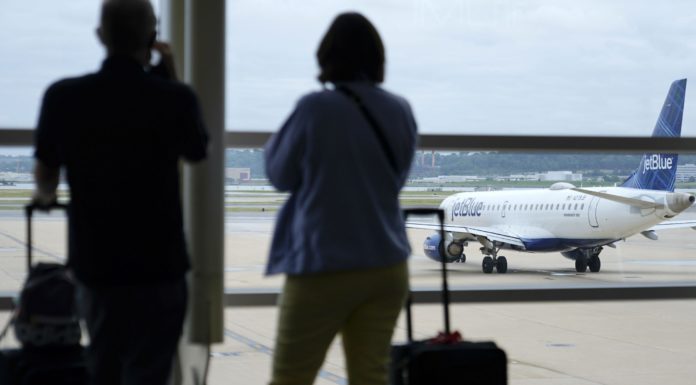(The Center Square) The U.S. Chamber of Commerce is warning a proposal to require airlines to compensate stranded travelers could mean higher fares and less competition in the travel industry.
Sterling Wiggins, senior director of Transportation, Infrastructure and Supply Chain Policy at the U.S. Chamber of Commerce, said the proposal – to require airlines to provide compensation and cover expenses for stranded passengers – isn’t what it seems.
“While this proposal appears laudable at first glance, the reality is that it ignores many facts about today’s passenger airline industry and could result in higher fares and fewer choices for many American travelers,” Wiggins wrote.
The U.S. Department of Transportation announced in May it would launch a new rulemaking process to require airlines to provide compensation and cover expenses for stranded passengers.
U.S. Transportation Secretary Pete Buttigieg said at the time the “rule would, for the first time in U.S. history, propose to require airlines to compensate passengers and cover expenses such as meals, hotels, and rebooking in cases where the airline has caused a cancellation or significant delay.”
The rulemaking will address compensation for passengers when there is a controllable airline cancellation or significant delay; a meal or meal voucher, overnight accommodations, ground transportation to and from the hotel and rebooking for controllable delays or cancellations; timely customer service during and after periods of widespread flight irregularities; and it will define what constitutes a controllable cancellation or delay.
The 10 largest airlines guarantee meals and free rebooking. Nine guarantee hotel accommodations. One guarantees frequent flyer miles and two airlines guarantee travel credits or vouchers in the case of significant delays or cancellations caused by something within the airline’s control, such as a mechanical issue. No airline guarantees cash compensation when an airline issue causes the significant delay or cancellation.
The department’s planned rulemaking process would make passenger compensation and amenities mandatory.
Wiggins said that could mean higher fares for travelers.
“In addition to requiring refunds and reimbursements in the event of cancellations and delays, DOT’s proposal requires compensation above and beyond simple refund or reimbursement for travel costs,” he wrote. “These punitive damages could significantly inflate the cost of airfares during a time of already high inflation.”



